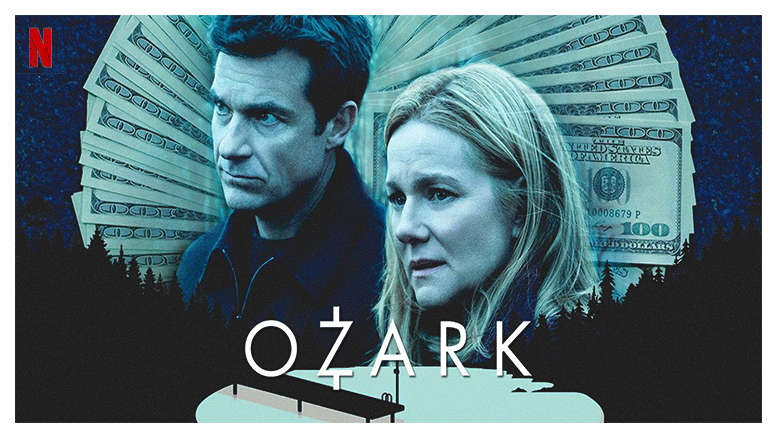Are you a “Breaking Bad” fanatic? Then guess what? “Ozark” is most definitely worth your time!! Although it is dark, violent, unethical, and a dangerous endeavour, and all connected to the illegal drug cartel, “Ozark” is strikingly different from the “Breaking Bad” series.
A Netflix Original American crime-drama television series starring Jason Bateman and Laura Linney plays the married couple. Ozark recounts the story of the couple’s family who moves to the Lake of the Ozarks to cash in on the alleged money laundering schemes. In addition to being the lead character, Jason Bateman also serves as the director and executive producer of the show. The four-season run of the series premiered in July 2017 with positive reviews from critics. It was particularly praised for its tone, directing, production values, and especially the mind-boggling performances of the lead characters. And fans were left in shock last month after a jaw-dropping finale.
Although I stumbled upon the series late in the Pandemic year, much like the Peaky Blinders, I thoroughly enjoyed its thrilling, intense, and suspenseful twists. However, Ozark may not be to everyone’s taste, given its themes, violence, and strong language. But if you don’t mind such things, I recommend watching it. Here is a brief review upon finishing the show. You should be aware of spoilers if you haven’t already watched it.
OZARK PLOTLINE
The Netflix series originated with the American filmmaker and screenwriter Bill Dubuque, known for films such as The Accountant and The Judge. Jason Bateman, the director, producer, and lead character, plays the role of Marty Byrde, a successful financial planner with a powerful Mexican Drug Cartel as his primary client. His business partner siphons off some cartel money without his knowledge, seemingly putting Marty Byrde in grave danger. When his business partner gets killed by the cartel, Marty persuades them to spare him and his family. He offers to set up a new and bigger laundering scheme in central Missouri’s Lake of the Ozarks.
While unsure exactly how he would achieve the impossible, he and his family could only survive if they moved from the Chicago Skyscrapers to the remote Lake of the Ozarks without other choices. As the hopeful family man relocates with his wife and his teenagers, Marty faces numerous challenges. He finds varied businesses to invest in, dealing with local criminals such as the Langmores and the Snell families, and later the Kansas City Mafia. In time, his wife, Wendy Byrde, too, becomes an integral part of the cartel.
Throughout the four seasons, the storyline stresses the dangers they face and the criticality of their survival. Ozark also presents a realistic and believable family crime drama. It demonstrates what happens when the children learn how their parents earn money.
THE BYRDE FAMILY SAGA
The cast of Ozark was astoundingly brilliant, which led to the series being a huge success. And the Byrde Family saga amplified the performances even further. It is primarily due to the Byrde Family that the show differs from Breaking Bad. The story begins with Marty already being a criminal, his wife, Wendy, is aware of the situation, and the children, Charlotte and Jonah, slowly discover the truth in very early episodes. While Charlotte struggles to comprehend the information, she later supports and protects her parents with their secrets. Meanwhile, Jonah learns about gun shootings and offers better money laundering solutions.
Then again, the family and the business complexities eventually lead to their disintegration throughout the series. But when Marty and Wendy fall victim to a money laundering scheme in season three. It requires them to repay substantial debts to the Mexican Navarro Drug Cartel to keep their family alive, forcing the fractured Byrde Family to reunite again. While the Byrde Family are great protagonist, the series also features many other great characters. For example, the most memorable is Ruth Langmore, played by Julia Garner, a member of a criminal family associated with Marty. As the series progressed, she became a fan favourite with her biting intelligence and business sense. Even though most of these characters do not appear as “good people,” their actions are sympathetically portrayed without justifying them. And that gap makes the viewers eventually develop a sense of empathy for them.
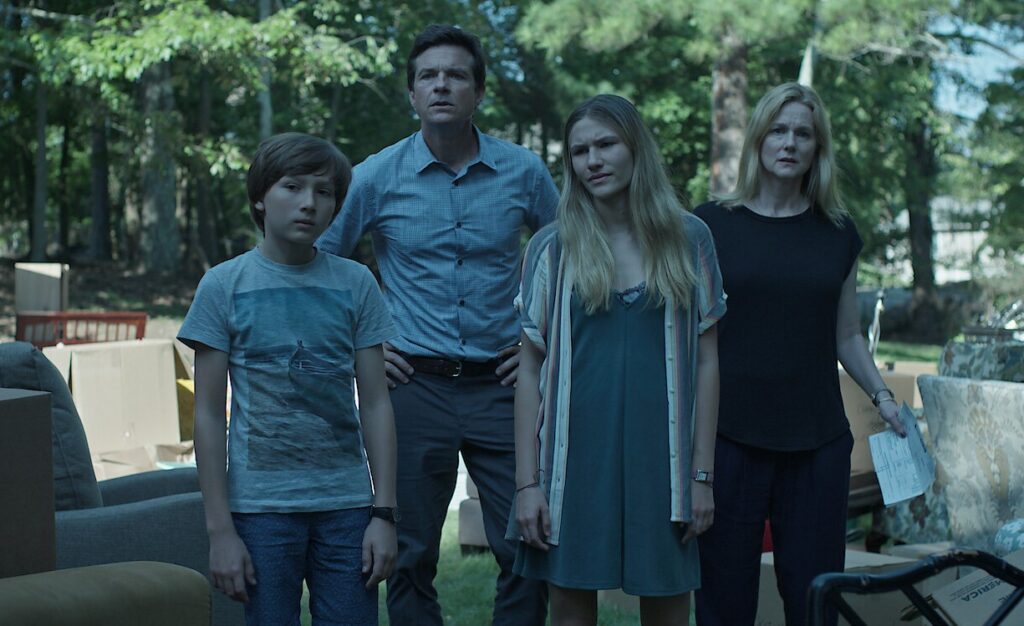
THE ART OF MONEY LAUNDERING BUSINESS
The Navarro Drug Cartel murders Marty’s business partner, Bruce, after discovering that he has siphoned $8 million from their revenue. Marty then agrees to pay back the cash to save his family and continue laundering for them by moving to the Lake of the Ozarks, which is outside the reach of US authorities. With an eight-million-dollar drug money-laundering deadline, the Byrde Family moves to Missouri. Marty quickly acquired two businesses, the strip club Lickety Splits and the Blue Cat Lodge Lakeside Inn, which have high operating costs and require renovations. As a result, he launders money by paying, illegally gaining funds into the banking system, and then converting it into untraceable legal currency by two means.
Firstly, the artificial inflation of revenues through the combination of cartel dollars and bank payments. Secondly, by exaggerating the costs of businesses and paying vastly higher amounts to cartel-controlled suppliers. But once the dirty money is in the banking system, its tracks need covering so that the relevant financial authorities can’t identify its source. It appears a US dollar bank account belongs to a shell company (a company without employees or a physical location and used solely to hold funds, often with anonymous or disguised ownership) that exists outside the reach of the tax authorities.
From there, it can be withdrawn, authenticated as legitimate, and transferred back to a standard current or checking account in another country. Marty uses shell companies in Panama and other offshore jurisdictions, none of which bear his or anyone else’s name. His son Jonah does precisely the same thing when he opens a bank account under a false identity.
In the words of Marty –
“Okay, money laundering 101. Say you come across a suitcase with 5 million bucks; what would you buy? A yacht? A mansion? A sports car? Sorry, the IRS won’t let you buy anything of value with it. So you’d better get that money into the banking system. But here’s the problem: that dirty money is too clean, looking like it just came out of a bank vault. You have to age it up, crumple it, drag it through the dirt, run it over with your car, anything to make it look like it’s been around the block.
Next, you need a cash business, something pleasant and joyful with easy-to-manipulate books, no credit card receipts, etc. You mix the five million with the cash from the joyful business, then the mixture goes from an American bank to a bank from any country that doesn’t have to listen to the IRS. It then goes into a standard checking account, and voila, all you need is access to one of over 3 million terminals because your work ends here. Your money is clean. It’s as legitimate as anybody else’s.”
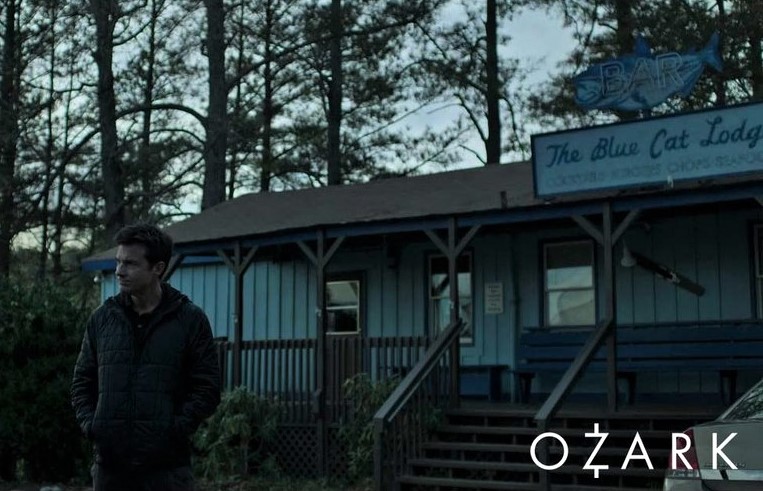
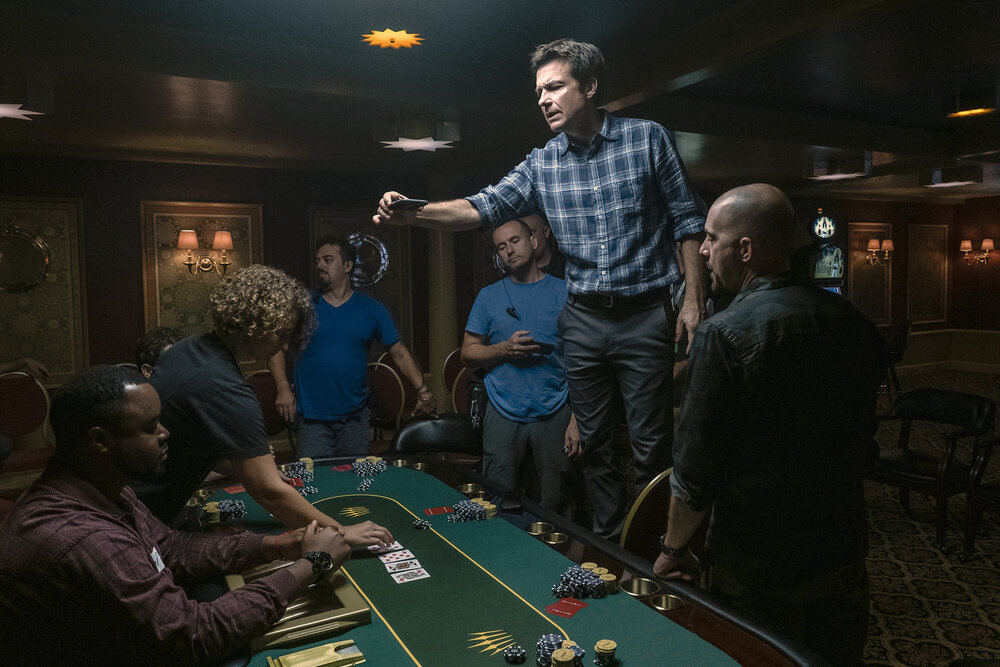
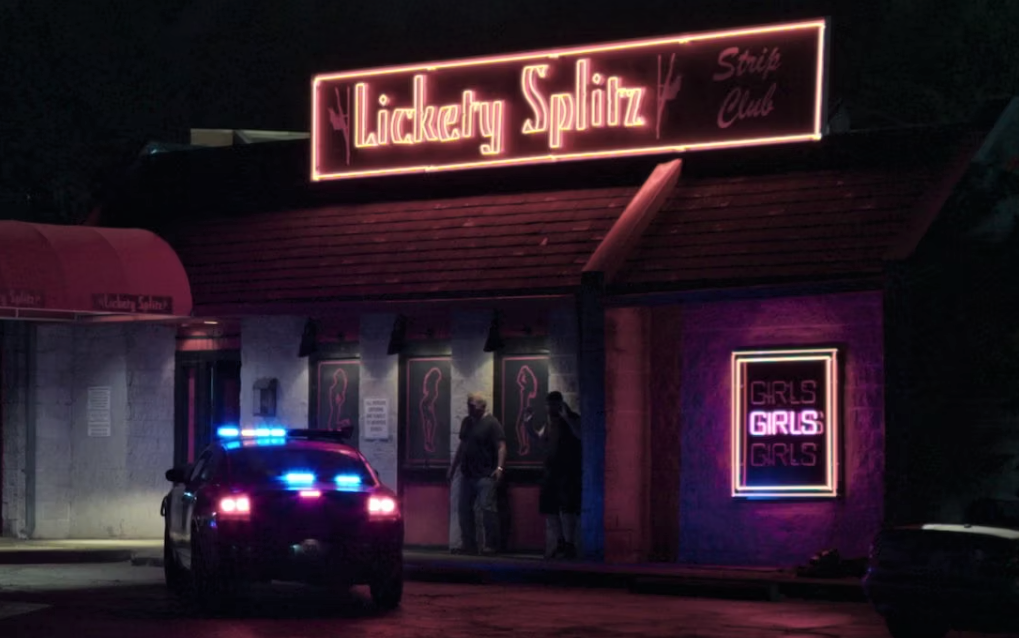
THE SURPRISING ENDING IN OZARK
The series wraps up just outside that same dining room, with the Byrde Family coming together to defeat one last threat, and Jonah finally commits himself to the parents he long tried to escape. A private investigator, Mel, promises to expose the Byrde Family for murdering Wendy’s brother Ben, holding the goat cookie jar with the ashes inside, but then Jonah appears with a rifle. It seemed like it took Jonah four seasons to prepare for this moment. The boy, deeply disappointed with his parents for killing his uncle, his mother’s blood brother, now sides with his parents.
To conclude the series, he, too, kills an innocent man to protect his family. And Marty’s barely subdued face tells you he is proud of the boy he raised. Marty still feels uncomfortable about getting his hands dirty, as evidenced in Mexico. So, it’s not because he’s grown used to murder. Instead, Marty is pleased with Jonah for mirroring his parents, similar to when he heard Jonah was laundering money and couldn’t hide his delight. Because, in the end, above all else, he puts the family first. To protect his family, Jonah is willing to sacrifice his moral standing to shed the blood of another. Like Marty, he’s doing what his father has always done since they fled Chicago.
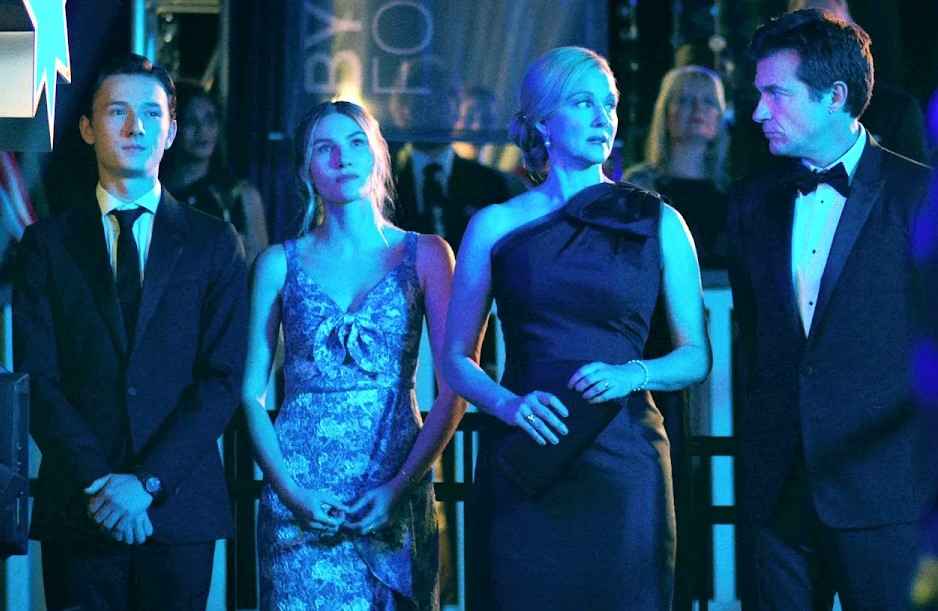
The series, however, takes no satisfaction in Jonah’s journey. Given how the final gunshot contrasts with the one that preceded it, putting blood relations over chosen family and loyalty over inherited loyalty are portrayed as the ugly act that it is. For example, Marty and Wendy prioritise their guaranteed safety, along with their children, over Ruth Langmore, who was closest to their family, without changing her last name to Byrde. Although Wendy and Marty had a fierce argument over saving Ruth’s life, they could not help but prioritise their kids.
Ruth Langmore spends much of the last episode communing with her dead family. While burying her would-be assassin, she spots Wyatt, her cousin. Later, she pictures her family returning for one last barbecue. Her father, Cade, runs the grill. Uncle Boyd lights a firecracker. Ruth and Wyatt sit atop their trailer as Uncle Russ plays the guitar. Ruth has buried far too many family members for someone her age, but she does not wish to leave. Marty offers her to leave town under a new identity, but Ruth declines. She is building her dream house where she grew up.
Even though believing she might reunite with her family makes her untimely passing easier to bear, she doesn’t harbour any hope that she’ll die to reunite with them. And this scene through the yard makes this moment both tender and tragic. The death of Ruth brings back the spirits of her deceased family members. But emphasising her attempt to start over, to rebuild from the ashes of so many lost souls, drives home the episode title, “A Hard Way To Go.”

